[This article was originally published on July 29, 2012, and has been revised and expanded numerous times since then, most recently in December 2019.]
After Star Wars became a blockbuster success in 1977, it came as very little surprise that lots of cash-in attempts ensued. Every major movie studio suddenly seemed to have a big-budget sci-fi film on their schedule, crazy astro-styled action figures flooded dime store toy aisles, every magazine had some iteration of the stars/monsters/droids of Star Wars on the cover, unauthorized “behind-the-scenes” publications filled racks in supermarkets and bookstores. The original soundtrack LP shot straight up the Billboard charts, peaking at #2, and was quickly certified as a gold record (and went platinum shortly thereafter). The single release of the Main Title and the Cantina Band theme from the original soundtrack was a similar success, reaching #10 on the singles chart. John Williams’ score was ubiquitous, and other musicians and record companies (knowing an opportunity when they heard it) wasted little time getting in on the act.
Italian-American producer and musician Meco Monardo (who adopted the shortened moniker ‘Meco’ for his recording career) set the standard for all Star Wars records to follow. His electro-disco medley of the Title Theme and Cantina Band numbers was a massive hit single, spending two weeks at number one and receiving endless airplay. To any kid with a Star Wars obsession, it was perfect: It’s the song from the movie, but faster! AND WITH MORE LASERS!
The single was taken from Meco’s Star Wars and Other Galactic Funk LP, which devoted its entire first side to a disco medley of selections from the film score (and featured airbrushed cover art of an art-deco spaceguy and spacegirl doing the bump). The album was also a commercial success, hitting #13 on the Billboard album chart.
And once Meco had opened the floodgates, a huge rush of Star Wars themed records ensued. The rest of 1977 was filled with bandwagon-jumping records, and artists reinterpreting the film’s soundtrack in a variety of ways.
20th Century Fox themselves came up with another creative way to sell Star Wars in record stores, following up the aforementioned single and soundtrack album with another LP, The Story Of Star Wars, which wove new narration together with selections from Williams’ score, sound effects, and dialogue clipped from the film. As home video was not yet commonplace, this album was something of a godsend for fans who wanted to re-experience the movie on demand – and like the soundtrack LP, it quickly became a best-seller and would go on to be certified gold.
The German synth group Bang Bang Robot released a disco track entitled La Guerre Des Étoiles that strung multiple themes from the score into an extended laser-powered getdown; eight tracks woven into a fourteen minute-long epic. The full-length version was released as a 12″ single in european markets, a three-minute edited version received a simultaneous release on 45.
Galaxy 42 was another act to get a piece of the sudden “all things Star Warsy” craze. They released a euro-disco version of the main title that was pretty similar to the Meco version, but inserted a bunch of of breathy vocal chants (“Star Wars!” “Help Me!”) to add to the boogieing excitement.
An obscure European label called Splash Records released Star Wars Disco by a group known as The Force. It hews closely to Meco’s space-disco template, but is notable for its huge cavernous percussion, oddly meandering basslines, and the cover art featuring a couple of brilliantly off-model droids.
The Planet Robots, another of the innumerable insufferable sci-fi disco soundalikes, released an album entitled Disco Music Inspired By Star Wars, with all the requisite laser blasts and swooping violins and tootling horns that anyone could possibly hope for. The first side of the record was given over to the “Star Wars Soul Music Medley” – nine selections from the Williams score, whipped into an extended dance floor free-for-all; the second side was made up of five original eurodisco tunes, none with any thematic connection to the album title or concept. (This non-sequitur quality carried over to the cover art, which featured a badly reproduced drawing of Marvel Comics’ Silver Surfer flying through space.)
Possibly the best of all the myriad dancefloor renditions is Star Wars Theme by the Graffiti Orchestra, full of cascading strings, “chika-chika” funk guitar and booty-shaking bongos. It’s a long string of crescendoes and breakdowns, keyboard improvisations, an occasional snatch of Williams’ familiar melody, then more giant brass riffs and another round of climaxes. There’s no restraint applied whatsoever, just a lot of interplanetary wah-wah freaking.
On a jazzier note, the Pianist and arranger David Matthews recorded renditions of two of Williams’ score selections on his CTI LP Dune. Side one of the record consists of 4 original compositions interpreting the eponymous Frank Herbert novel; side two throws together a version of the theme from the 1972 sci-fi picture Silent Running, two numbers from the Star Wars score, and just for good measure, a truly kitschy rendition of David Bowie’s Space Oddity. The version of Princess Leia’s Theme plunks along without much incident, but the version of the Main Title is a stomping nightmare of swirling strings, brass, and occasional double-timed percussion, with a whole series of surges and lulls. A quick rise of staccato notes suddenly drops to a cavern of echoing bongos,whistles, and electronic chirping; another sudden increase in tension pays off with a blast of filtered guitar soloing.
Similarly, well-respected trumpeter/bandleader Maynard Ferguson unleashed a bizarre fusion remake of the Main Title, full of of electric guitar noodling and high-pitched squawking brass solos. It’s about half muzak and half club track, but it’s somehow less interesting than that combination may suggest. It was available as a single, and as the lead track on his New Vintage album (released that same year).
Organ virtuoso Richard ‘Groove’ Holmes recorded a track that melded the Main Title with the theme from Steven Spielberg’s Close Encounters Of The Third Kind, and released it as the lead track on his fittingly-named Star Wars / Close Encounters album… It’s a five-minute jam that begins with a snare drum march revisitation of the Williams melody, shifts into a funky disco rhythm, drops to an extended B3 and guitar break, and then builds back up to a climactic finish. It’s listenable and quite danceable, a track ripe for daring DJs or producers in search of spacey samples. (The other four tunes on the album are merely lukewarm jazzy covers of pop hits: “You Light Up My Life”, “Nobody Does It Better”, “Gonna Fly Now”, and “Carry On My Wayward Son”. Yeep.)
And finally on the dance-jazz front, there’s Don Ellis’ Music From Other Galaxies And Planets LP. (And though Music From Other Galaxies is technically the name of the album, it’s dwarfed on the front cover by an enormous STAR WARS logo swooping over an outer space scene.) The version of Willams’ Main Title on this album starts off sounding very close to the original symphonic soundtrack recording, but once the main fanfare finishes, the beat drops and it builds to a climax of chimes and laser effects. The other SW-related track on the record is a execrable slow-jam rendition of “Leia’s Theme” which is worthy of mention only for the fact that it exists; the rest of the tunes are reworkings of some of Ellis’ earlier compositions, retitled to fit the overall space concept.
Patrick Gleeson’s Star Wars is easily the most gleefully deranged of all the first-wave Starwarsian cash-in records. Gleeson was an acclaimed composer and keyboardist who had played with Charles Earland, Freddie Hubbard, and Herbie Hancock. In 1976, he released an electronic version of Holst’s The Planets, so covering Star Wars tunes was an obvious next step. Recorded on “the world’s most advanced synthesizer” (according to the liner notes), it’s an thundering analog romp through seven themes from the soundtrack, featuring a hallucinatory take on The Tatooine Desert, a glitchtastic and sound-effect-laden interpretation of Droids, and a waveringly dissonant run through Star Wars Cantina Music. Gleeson plays all the keyboards and sounds himself, and percussion is provided by a stellar crowd of jazz-fusion sessioneers (including Harvey Mason and Billy Cobham). From the awesome and terrifying cover art to the final fading robotic tones of Ben Kenobi’s Theme, it’s a true stand-out amongst the flood of Star Wars emulators.
A little less impressive is the Electronic Moog Orchestra’s recording of the score: some of it is simply bland lounge music, but high points include the synth cha-cha of Princess Leia’s Theme, an Imperial Attack that begins with a ponderous repetition of the melody before breaking into a chugging marathon of echoing guitar and keyboard burble, and a frantic take on Cantina Band that seems to skip half of every note as it tumbles over itself in a race to the finish line.
One of the oddest variations on the Main Title is the synthrock version by session guitarist Neil Norman – it’s arranged by the great exotica composer Les Baxter, and was initially released as a single in 1977, then as a featured track on Norman’s 1978 Not Of This Earth album. (Neil was the son of GNP/Crescendo founder Gene Norman, and parlayed his early success into a long career running the family record label and performing sci-fi covers with his group “Neil Norman & His Cosmic Orchestra”.)
The Sounds Of Star Wars was released in the UK in 1977, and credited to The Sonic All-Stars (Conducted by Bruce Baxter). The slightly off-putting airbrushed cover and uninspiring band name don’t arouse very high expectations, but musically, it’s actually pretty interesting. The first track starts out unassumingly enough, as a straight cover version of the Main Title (albeit with the entire symphonic arrangement transcribed down for solo synthesizer). And then a little over a minute into the tune, there’s a total change of pace – an electronic rhythm kicks off, and everything goes easy listening robo-disco. That section leads to a long passage where everything disappears except the beat, squelchy electro sound effects, and some space winds whooshing around the edges. And then finally, the melody returns, and we click back into a steady electro-lounge groove until the song wraps up. The rest of the album is similarly schizo, veering from edgy to nondescript with little rhyme or reason. The bad bits are just plain dull, but the good bits are bombastic, groovy, and funky in most unexpected ways.
John Rose was the resident organist at Trinity College in 1977, when he was struck by the idea of performing John Williams’ score in a cathedral setting. The recording that ensued is truly unique: grandiose tones reaching for rapture, but more often evoking intergalactic apocalypse. While not without its interesting bits, the lumbering pace and somber mood can prove a bit much. The exception, and the album’s stand-out track, is a herky-jerky run through Cantina Band that conjures up images of broken-down alien midways (and, now that I think of it, is what county fairs on Tatooine would probably sound like).
Prolific bandleader Geoff Love left his mark on the market with multiple takes on John Williams’ melodies. In 1977, as Geoff Love & His Orchestra, he recorded straight-ahead symphonic renditions of the Star Wars Theme and Princess Leia’s Theme and released them on his Star Wars And Other Space Themes album. Then in 1978, he followed that up with the Close Encounters Of The Third Kind And Other Disco Galactic Themes album, which was released under the name Geoff Love’s Big Disco Sound. That disc contains a version of Star Wars Theme/Cantina Band that’s a cataclysmic whirlpool of brass and strings and extended proto-house bongo breaks, and a version of Leia’s Theme that features an endlessly repeating (and really catchy) minor-key string motif floating above the main melody and four-to-the-floor rhythm – they diverge notably from Meco’s space-disco template, and stand as unique re-imaginings of John Williams’ compositions. (In 1978, Love would also release an easy-listening version of Princess Leia’s Theme on the Music Of Manuel album, under his Manuel & The Music Of The Mountains alias.)
There were also plenty of tie-ins targeted to younger audiences. One by the Kid Stuff Repertory Company teamed a rather stilted marching band recording of the Star Wars Theme with a story called “Jack And The Flying Saucer”, and featured some cutesy droids and kids in a rocket ship on the cover. Two movie themed albums on the Peter Pan label (by Marty Gold & His Orchestra and The Now Sound Orchestra) and a similar one on Wonderland Records (credited to the brilliantly named Wonderland Space Shuttle) featured Star Wars prominently. And an all-ages cosmic disco album on Wonderland (imaginitively titled Theme From Star Wars, and credited to the Wonderland Singers & Orchestra) teamed a slick remake of the Main Title with versions of “We Are The Champions”, “Close Encounters Of The Third Kind”, “Stayin’ Alive”, and other then-current hits and movie themes. (The Peter Pan and Wonderland albums were released in 1977, the Kid Stuff record dates from 1978.)
A third album on Peter Pan pulled a bit of a bait-and-switch: Irwin The Disco Duck (also sometimes known as Irwin The Dynamic Duck) was a character created in the wake of Rick Dee’s #1 single “Disco Duck”, when the label needed a figurehead for a series of albums that featured their in-house band covering current pop hits. And while 1977’s Duck Wars LP featured a title and cover art that implied intergalactic excitement, the music inside failed to live up to the hype – after leading off with a a disco-lite reworking of John Williams’ “Close Encounters Of The Third Kind”, the rest of the record simply featured a slapdash selection of Top 40 tunes, with no other trace of space (and not a hint of Star Wars) in sight.
Meanwhile, similar budget kiddie label Mr. Pickwick hopped on the galactic bandwagon with their 1977 Space Holiday EP (credited to the never-to-be-heard-from-again ‘P.K. & The Komets’), which featured an ever-so-slight reworking of Williams’ Main Title theme, creatively rechristened as March Of The Jedi Knights.
Of course, comedy and satire records also popped up to exploit the public’s hunger for more Star Wars material. 1977 brought us Star Warts by novelty maven Dickie Goodman, a single that used his patented “break-in” technique of interspersing new dialogue with snippets of popular songs to create a nonsensical conversation about the film. The “Star Wars Stars” by The Force (not the euro-disco act with the same name) was a variation on the same idea released later that year, but lacked Goodman’s quick-editing prowess and comic timing. Tiny New York label GP Records released a single by The Space Troopers called Bad Darth, which was a straight-ahead rewrite/parody of The Hollywood Argyles’ classic tune “Alley Oop”. And an album entitled Star Boores was cranked out in due time, and hit record store shelves in 1978.
And then there’s the category of music “inspired by” the movie and original soundtrack, without directly covering the John Williams compositions. Exhibit A: Living In These Star Wars by The Rebel Force Band, a 1977 album of treacly soft-rock and misguided disco tunes about far-away galaxies and long-ago times. It includes such not-quite-classics as Ballad Of Obi-Wan (OB-1), A Respirator For Darth Vader, and Leia, a yearning ballad about a princess of some renown. It’s good for a chuckle.
Domingo Samudio, AKA Sam The Sham, best known for recording “Wooly Bully” with his band The Pharaohs in the mid-’60s, found a similarly shaggy subject when he released The Wookie as a single on the tiny Fretone label in 1977. Sadly, unlike his classic garage rock rave-ups, this tune merely laid down a lukewarm disco-funk backing track while extolling the virtues and virility of the Millennium Falcon’s co-pilot. (There are different versions of the label for this single, some featuring a “The” in the title, some skipping the definitive article and simply titling the song “Wookie”.)
Canadian pop singer (and former teen idol) Bobby Curtola also tried to get a piece of the sci-fi pie with his 1977 single ‘May The Force Be With You’, a rather turgid slice of laser-garnished downtempo disco espousing the triumph of good over evil. It does, however, get points for including the no-nonsense lyric “Star Wars, you already know what it’s about”.
The Droids’ Disco Robot / Cosmic Space Shuttle was released on the one-time-only STARRWARZZ label, and though the track itself is little more than a run of the mill astro-disco novelty, it was recorded by an impressive trio of Nashville musical luminaries: songwriter Ron Hellard (author of tunes for Roy Clark, Slim Whitman, Johnny Paycheck, George Jones, and other country music icons), and producers Gary S. Paxton (who had produced such hits as ‘Alley Oop’, ‘The Monster Mash’, and The Association’s ‘Along Comes Mary’) and Buzz Cason (who’d worked with artists including Elvis Presley and Jimmy Buffett, and co-wrote and produced Robert Knight’s classic ‘Everlasting Love‘).
Another particularly shining example of a wanna-be tie-in record is (Do You Have) The Force by an entirely unrelated German group, also called The Droids. According to legend, the bandleader was inspired after seeing Star Wars, and proceeded to record seven minutes of stripped-down loping krautrock, with occasional R2D2 whistles and beeps and flurries of laser fire sprinkled throughout. (Kinda like a low-rent Kraftwerk track, but with fanciful evocations of spacecrafts in place of automobile noises.) It received a single release in various European countries, and was featured on the group’s only album, Star Peace, released in early 1978.
The Miami-based T.K. Disco label was responsible for another anomalous entry in the annals of Star Warsian tie-in records: a 1978 release by a group known as A.D., an eight minute cosmic dancefloor opus called Return Of Vader. The tune includes bongos, whistles, beeps, lots of heavy distorted breathing, a ridiculous chant of “Vader’s back! He’s returned! He’s ready to burn!”, and a more-than-healthy dose of saxophone soloing. It’s the sound of judgement impaired by excessive cocaine use, and makes a good argument for disco being the path to the dark side.
And the pinnacle of the sci-fi dance music spin-offs has to be I Lost My Heart To A Starship Trooper by Sarah Brightman & Hot Gossip. It’s a huge vocal anthem full of breathy innuendo, references to droids and Darth Vader, and an inane chorus that repeats endlessly and seems genetically engineered for maximum annoyance. (Years later, Sarah Brightman would achieve fame as the leading lady of Broadway’s Phantom Of The Opera, and go on to a successful career making records that involved far less intergalactic licentiousness.)
A short-lived Flemish act named Space Pilots released an album called Space Music in 1978, which was made up of a few original tracks and a bunch of astro-centric cover versions. The version of the Main Title (listed as “Stars War”) is a downtempo rush of gurgling keys and twinkling beeps over a hypnotic metronome pulse; a synth-lounge dream of a far-away galaxy.
Soft Energy was a similarly transient electro-prog group; their 1978 Sideral Space album (also issued under the title Spaced-Out Moog) featured a selection of far-out cover versions, including the requisite keyboard-heavy reworking of the Main Title. The LP was apparently only issued in France, and quickly disappeared into near-total obscurity.
An act known only as Galactic Force Band released their Spaced Out Disco LP in 1978 on the obscure Springboard Records label, which featured yet another set of mirror-ball variations on Cantina Band and the Main Title, both of which were nearly indistinguishable the Meco renditions. (Galactic Force Band would go on to warrant a footnote in hip-hop history, when pieces of their the album track Space Dust were sampled by both K9 Posse and Rob Base & DJ E-Z Rock.)
Osamu Shoji was an arranger and synthesizer virtuoso who, in 1978, released his own Star Wars album on Warner-Pioneer Records Japan. The brightly-colored Anime-style cover gives the first indication that this isn’t just another routine do-over of a soundtrack, and makes a perfect fit for the music within: a recognizable, though distinctly distorted, re-imagining of familiar subjects. Each track is filled with glitches and tworps and all manner of odd analog sounds, notes waver and bend, tones wobble and nearly run astray. Songs dash right to the edge of a precipice, peer over the edge, and somehow never quite lose their balance. Notes fall ever-so-slightly out of tune with themselves. This version of Cantina Band is a junkyard cacophony of synthesized steel drums and backfiring squeezebox emulators, the Main Title starts as straight ahead warp-boogie and dissolves into drunken robot improvisation, and The Throne Room is straight-ahead 4/4 disco deconstruction. It’s a little unsettling, but well worth listening to.
Japanese synth wizard Tomita kicked off his 1978 Kosmos album with a unique take on the Main Title, filled with high-pitched squeals, electronic gurgling, and and an interpolation of the opening theme from Beethoven’s Für Elise. It’s quite novel, but something of a red herring – the rest of the album consists of little more than by-the-numbers polyphonic reworkings of classical pieces.
The Chris Carpenter Orchestra was an outfit that specialized in re-recording various film scores for the Japanese market, so it was fairly inevitable that they would attempt to get a piece of the late-’70s space craze… And while the music within isn’t too spectacular, the airbrushed cover art for their Close Encounters/Star Wars split single is a mini-masterpiece unto itself.
And rounding out 1978’s diverse line-up of Japan’s Jedi-infused offerings, acclaimed guitarist Masayoshi Takanaka offered up the clattering, whistle-and-percussion-laden Star Wars Samba, a carnival-styled fever dream that featured on his full-length Brasillian Skies LP and was released as a stand-alone 7″ single.
By the time Star Wars became an international sensation, funkmeister Jimmy Castor had established himself as an idiosyncratic innovator – his albums as leader of the Jimmy Castor Bunch contained a mix of dancefloor-fillers, slow jams, psychedelic meditations, and a series of spoken-sung heavy grooves about neanderthal characters (“Troglodyte (Cave Man)”, “Luther The Anthropoid (Ape Man)”, “Bertha Butt Boogie”). His 1978 album Let It Out continued the stone-age saga with Bertha Butt Encounters Vadar [sic], which spun a scenario that Lucasfilm certainly never envisioned – an amorous dance date between the Dark Lord of the Sith and the bootytastic maiden of the prehistoric dancefloor. It’s amusingly infectious, filled with thundering percussion and searing guitar, liberally spiced with lyrical references to other topical pop-culture touchstones (Jaws, Star Trek, Saturday Night Fever), anchored by the same gravely vocal “BUM-BUM-BUM-BUM-BUM” hook as the original “Bertha” track, and filled out with distorted Sith-style breathing and liberal laser effects.
Possibly most unique of all is Phil Pratt’s Star Wars Dub, an album that was released on the UK Burning Sounds label in 1978. The tunes themselves don’t seem to have much connection to the film, but they’re top-notch Jamaican-style workouts: bass-saturated riddims full of twiddly organ runs, spaced-out echo effects, and thunderingly heavy drum rolls. And the Darth Rastafari painting on the cover is INCREDIBLE.
On a similarly tropical tip, Jamaican ensemble Byron Lee and The Dragonaires released a soca version of the main title in 1978 (both as a single, and on their More Carnival LP). It starts out aping the Meco arrangement, twists things into a stomping disco-samba frenzy, and ends up as a wild mix of blasters and brass and steel drums.
1978 also saw the release of “Tennessee Guitars Go To The Movies” on the tiny Plantation Records label, and while most of the disc is occupied with mediocre muzaky covers of popular cinema themes, the lead track is a truly unique take on the Meco template – it does the familiar trick of weaving the Main Title and Cantina Band melodies together over a disco beat, but features a yearning pedal steel as the lead instrument in place of the familiar electronics, like a transmission from a hole-in-the-wall Corellian honky-tonk saloon.
And inevitably, easy-listening duo Ferrante & Teicher, never ones to miss out on a profitable thing, released an album simply entitled Star Wars in 1978. Their version of the Main Title theme is totally unique (it features a glockenspiel break, for cryin’ out loud), and the rest of the album is a bizarre grab-bag of other songs that make vague astrological references, including “Stardust”, “Theme From Star Trek”, “Swinging On A Star”, “Moonshine Sonata”, and, er, “Claire Disco Tune”. It’s amusing enough, and the cover art features the maestros modeling the greatest patterned suit/facial hair fashion ensembles I’ve ever seen.
Lazaro’s Artuditu R2D2 was released in Mexico in 1978, a Spanish-language single that interpolates snatches of the Main Title melody into an original ditty devoted to the beloved astromech droid, featuring a truly bizarre stream-of-consciousness narrative interspersed with low-rent electronic sound effects. (Sample lyrics: “His name is R2D2, a little guy, and he talks like this [beep, whistle, squonk]…He makes special sounds when he sleeps, he snores like this [beep beep bloop].” It gets no better from there.)
It seemed like no genre, no matter how specialized, was immune to the lure of The Force. Puerto Rican trumpeter and bandleader Wilfrido Vargas’s 1978 Arrancame La Vida single was backed with an original latin-disco number named Star Wars Hustle. Singer Freddy Weller hit #32 on the Billboard Country chart with his 1978 Bar Wars single, a redneck anthem about “having The Force…of this bottle”, and losing one’s woman to another guy who’s like “some kind of Darth Vader”. Canned Rock, a UK prog/pubrock group released a single on their own label in 1979 that featured a cover of Sparks’ “This Town Ain’t Big Enough For The Both Of Us” on the A-side, and a version of the Main Title on the reverse. And Italian bass virtuoso Ares Tavolazzi assembled an outfit named the Paul Dark Orchestra for a one-off single that paired a cover version of The Princess Leia’s Theme [sic] with a spaced-out original composition called Cave Band.
Disney subsidiary Buena Vista Records put out an officially licensed Star Wars book & record set in 1979 as part of their popular children’s “read-along” series – marking the first teaming of Lucasfilm with the corporation that would end up purchasing them thirty-four years later.
Before the end of the decade, there were also 45s released of the Main Title by obscure acts Rocky Cavallo, Los Valentinos (who rendered the title as “Star War’s”), and Cook County. Jefferson Starship issued their 1978 single Light The Sky On Fire with a cover proclaiming “As Seen And Heard On The CBS-TV Star Wars Holiday Special”, but the less said about that, the better. The Ventures recorded a version of the Main Title that received a single release in Japan in 1978 (and was also included on the Japan-only Ventures In Space ’78 album). A Portuguese group named Orquesta Magic Fantasy released La Guera De Las Galaxias on LP in 1977 with their version of the Main Title as the lead track. French violinist and conductor Franck Pourcel’s Amour, Danse Et Violons N° 51 album featured the Main Title leading off an eclectic set of pop covers (Mull Of Kintyre, Take A Chance On Me, etc.). Any number of Philharmonic orchestras released their own performances of the score.
And for the sake of completeness, it’s worth noting that a band called Skywalker released a single called May The Force Be With You in 1977, country-western star Tom T. Hall released a song called May The Force Be With You Always in November of that same year, Christian troubadour Bill Davidson released an album of musical testimonials entitled Star Wars Of Darkness And Light in 1978, and supreme funketeer Bootsy Collins included a track called May The Force Be With You on his 1978 album Bootsy? Player Of The Year, which was only fitting considering his cosmic P-Funk affiliation.
Of course, the Star Wars music trend didn’t end with the 70s. There were more Force-filled films on the way from George Lucas and company, and more tie-in records would inevitably follow…
[Special thanks is due to Liz Wellbeloved of UVa’s Hispanic Studies Program for her assistance translating the Lazaro single for this article]

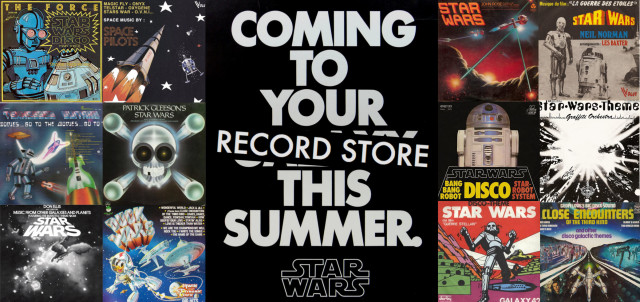
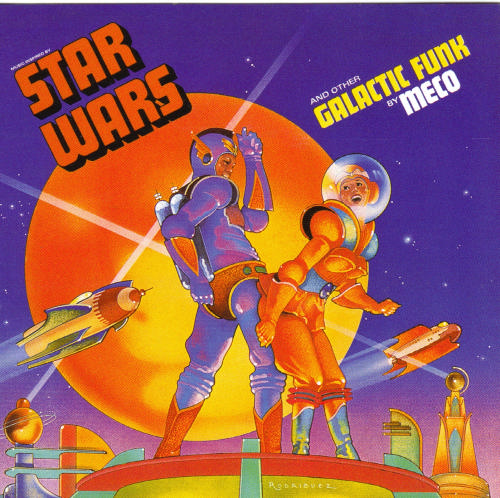
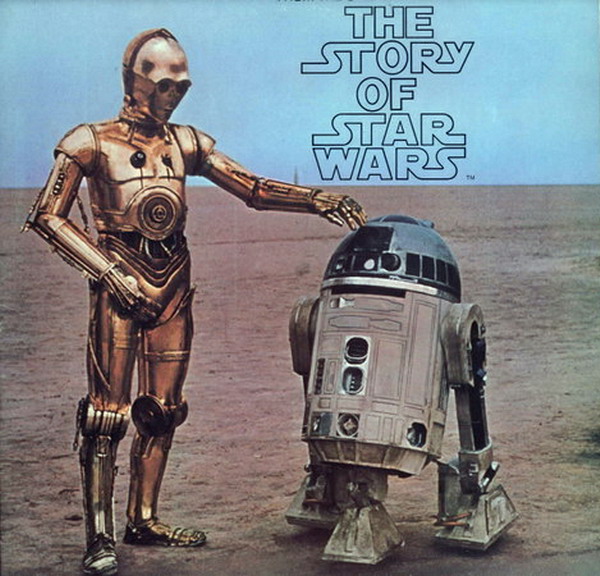
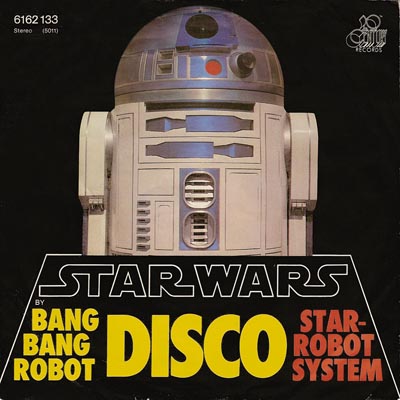
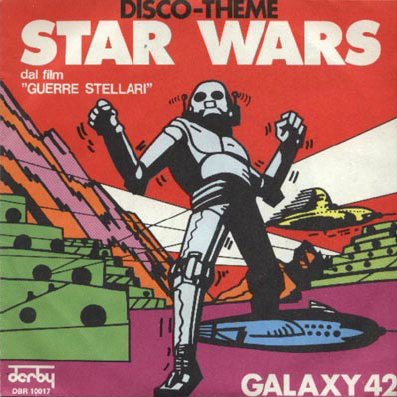
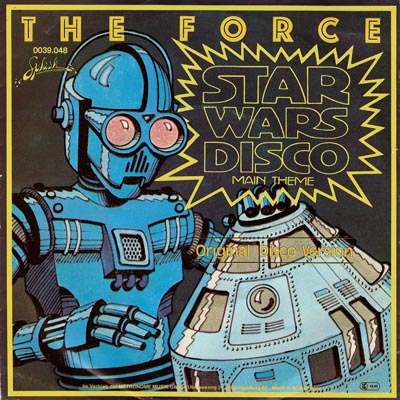
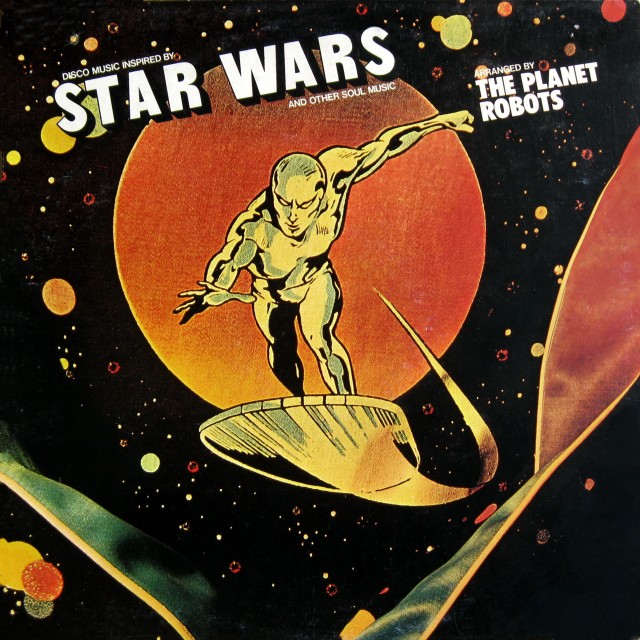
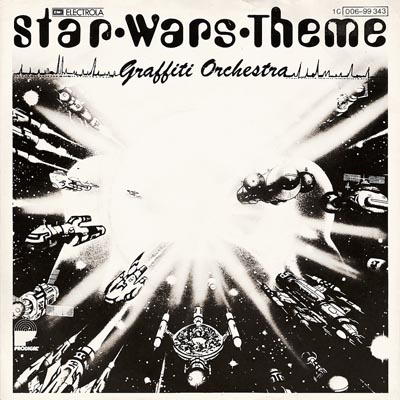
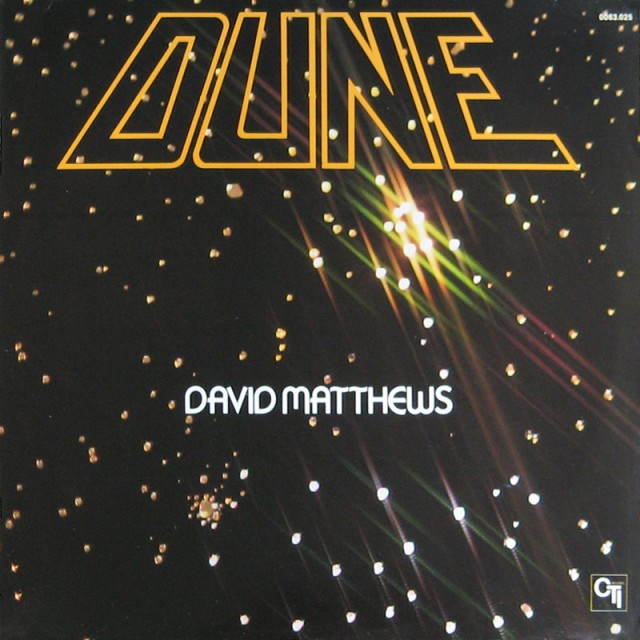


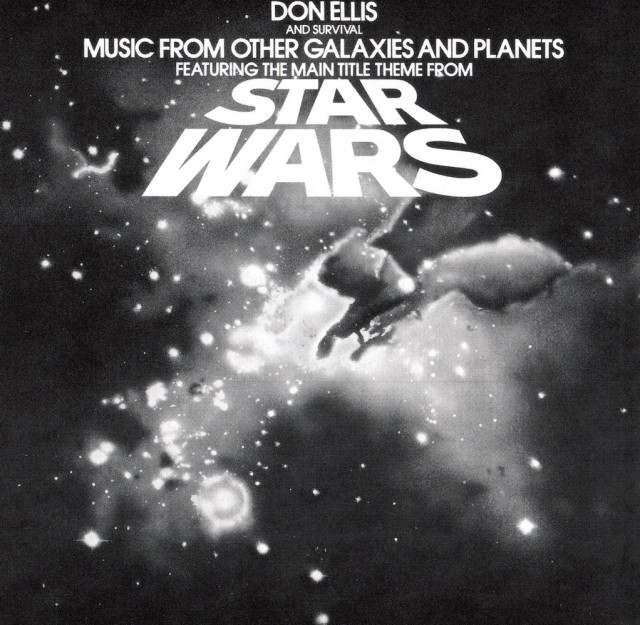
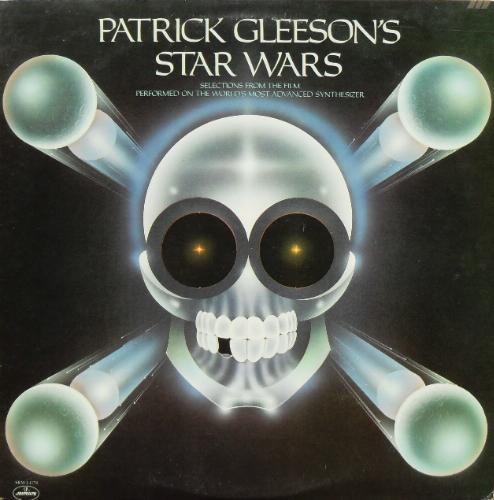
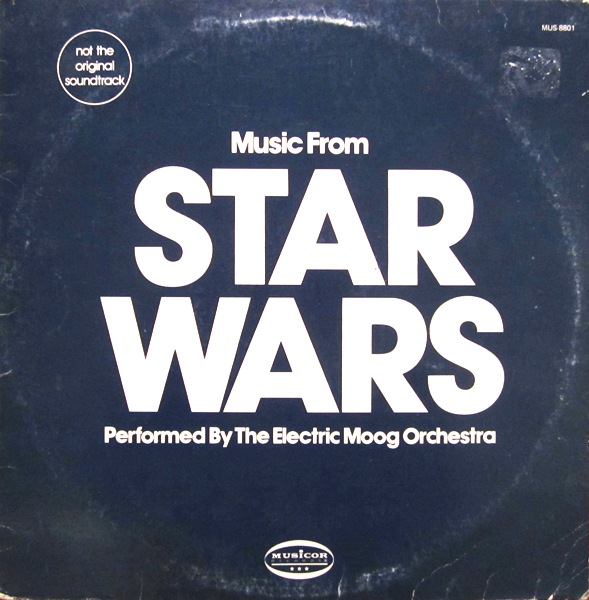
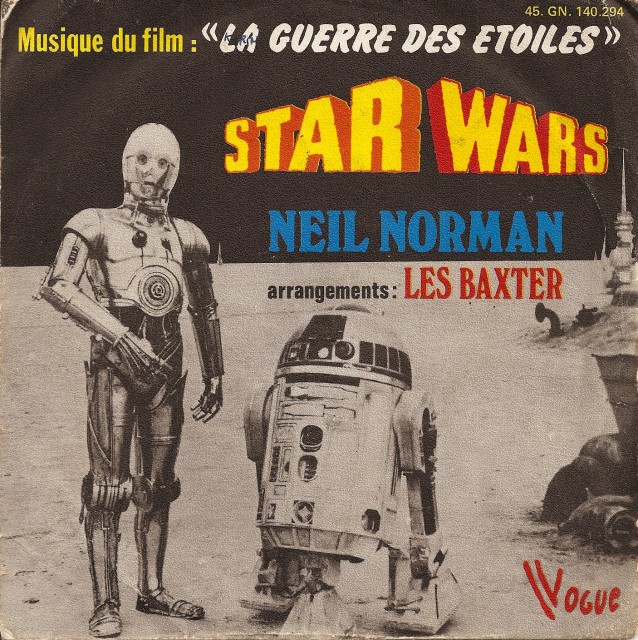
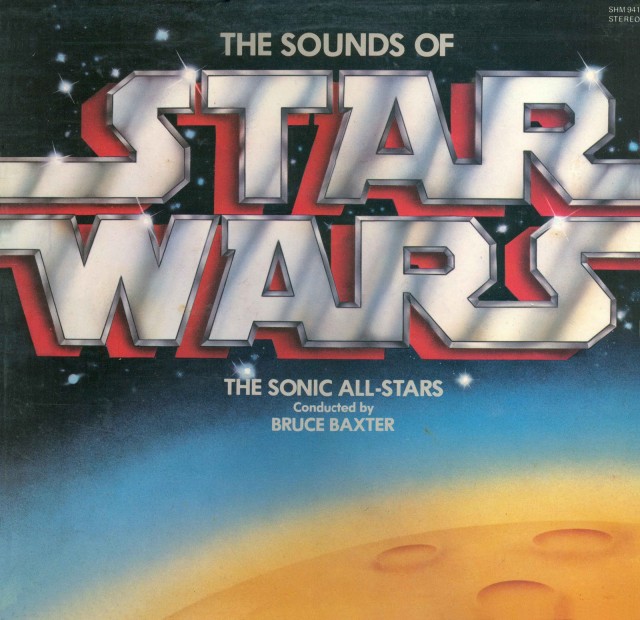
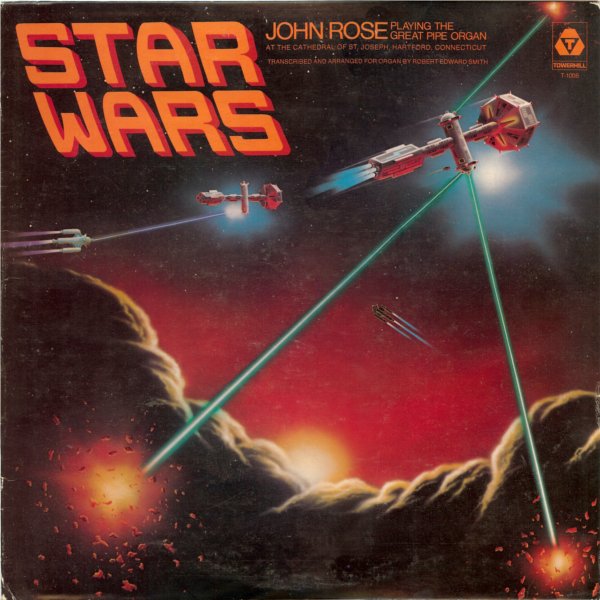
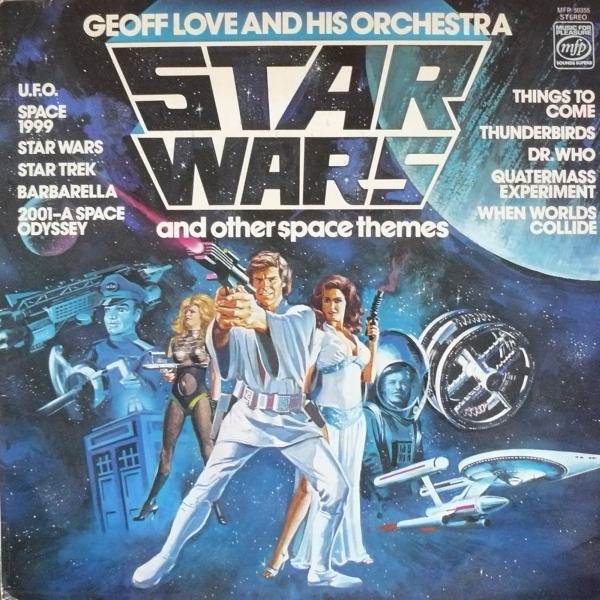
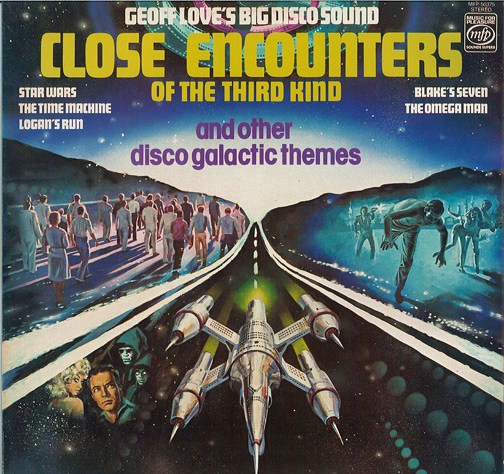
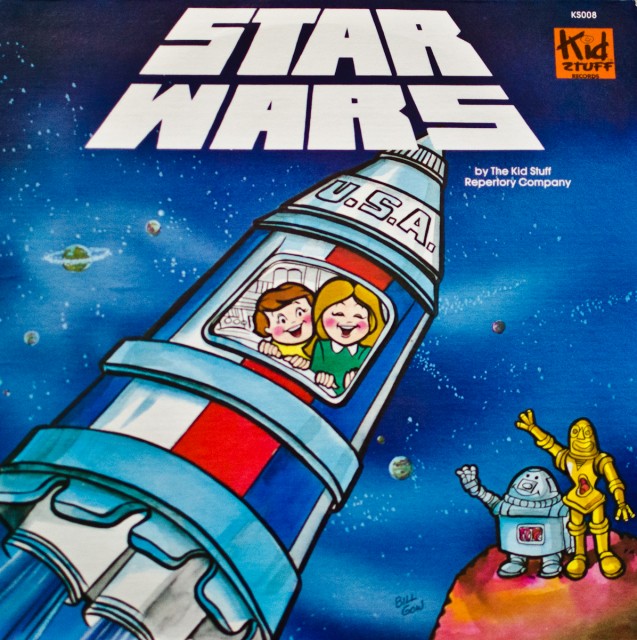
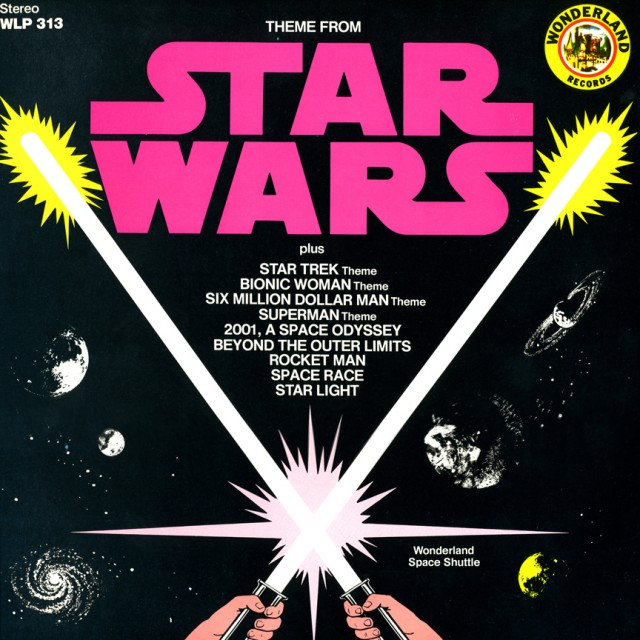
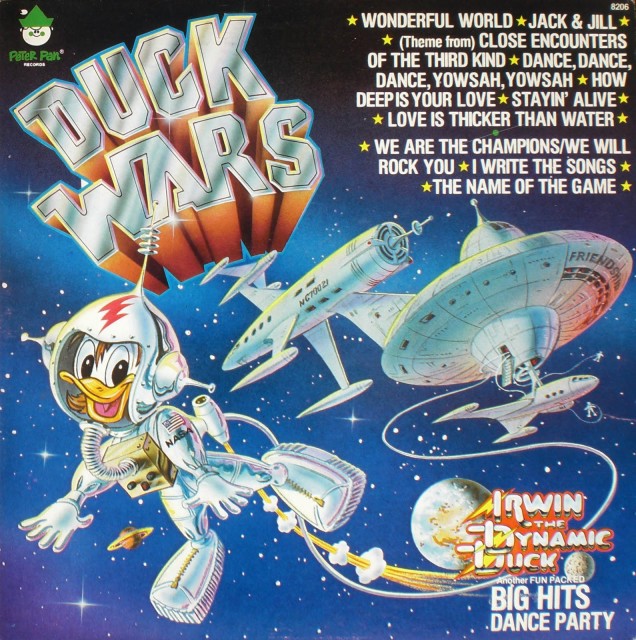
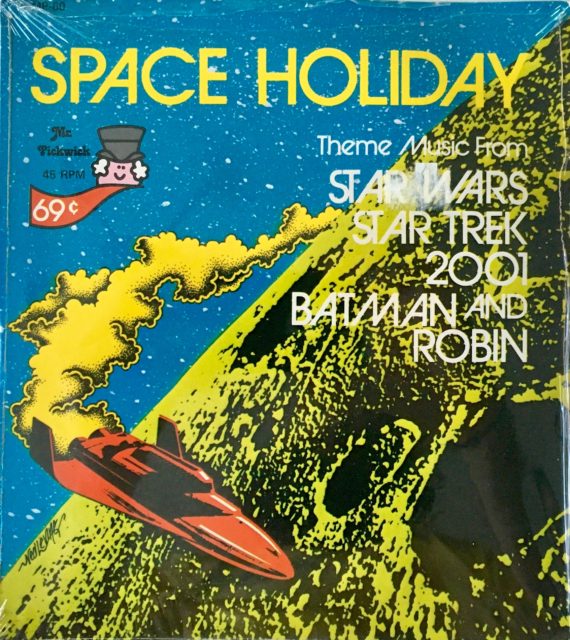

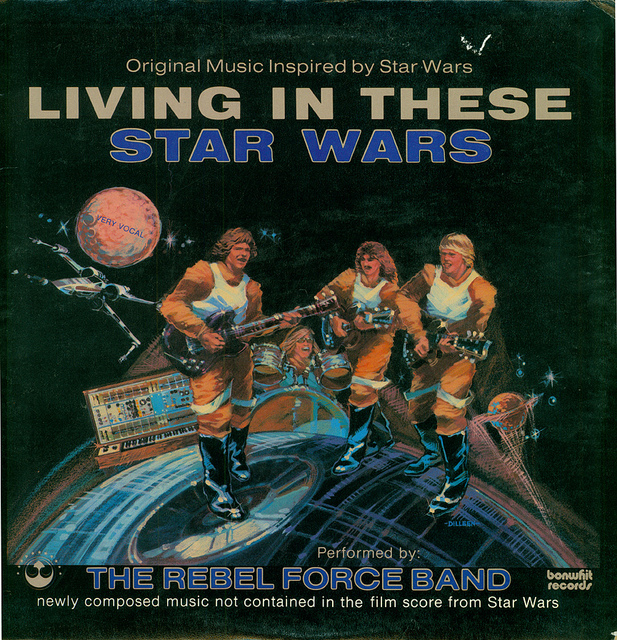
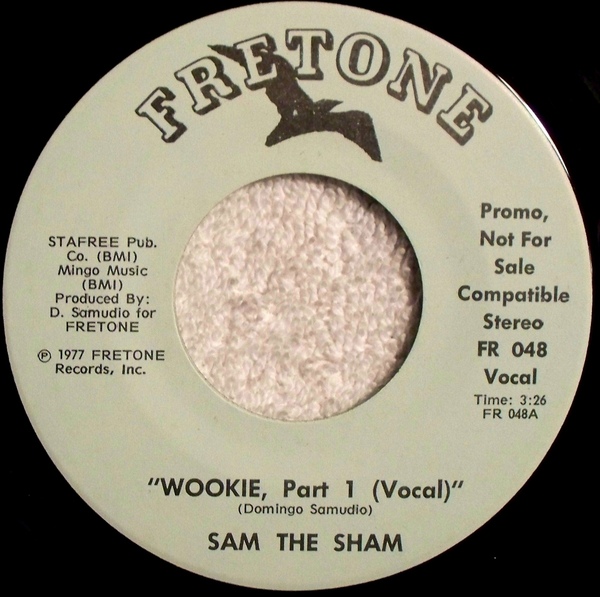
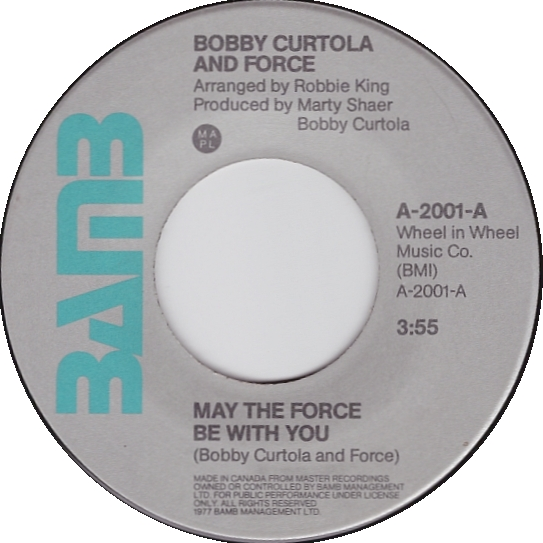
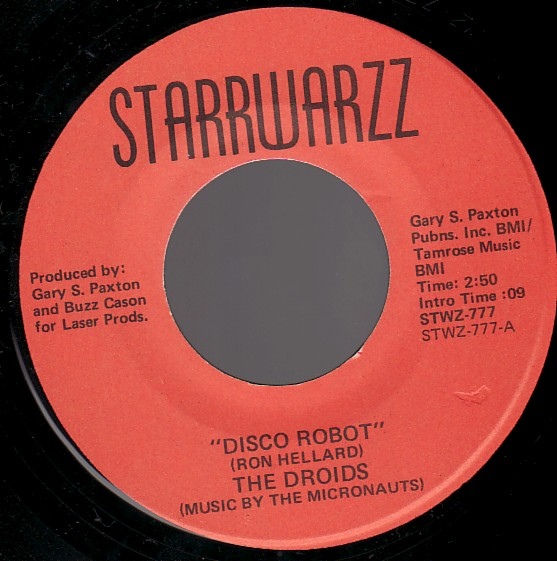
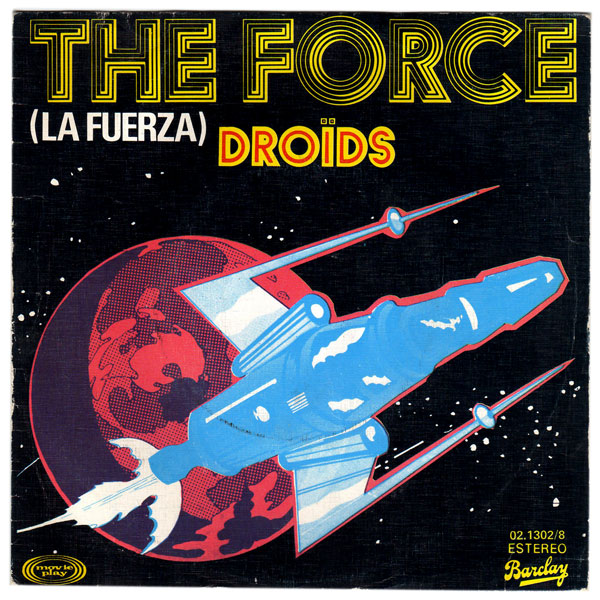
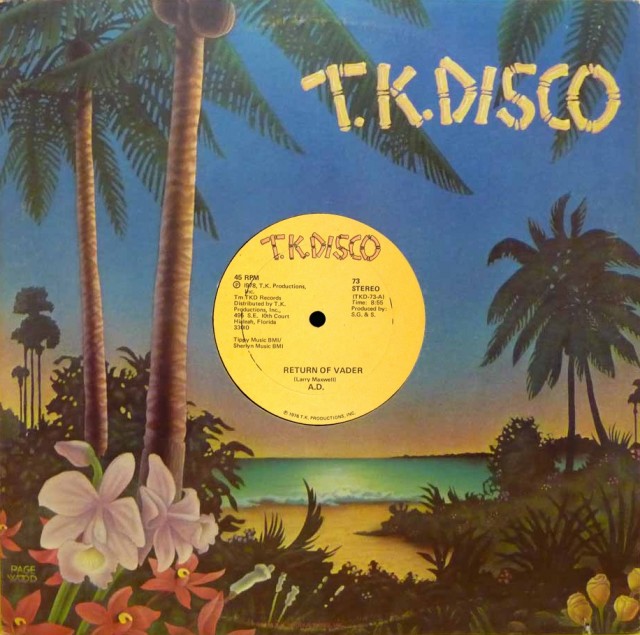
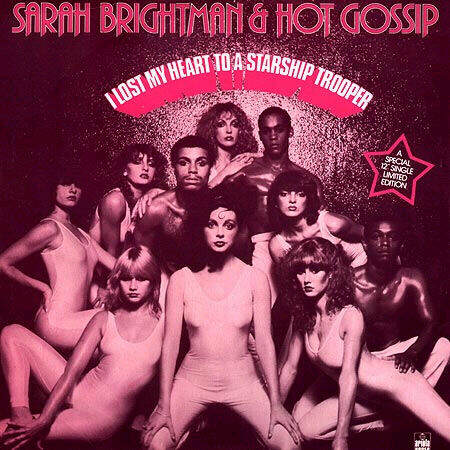
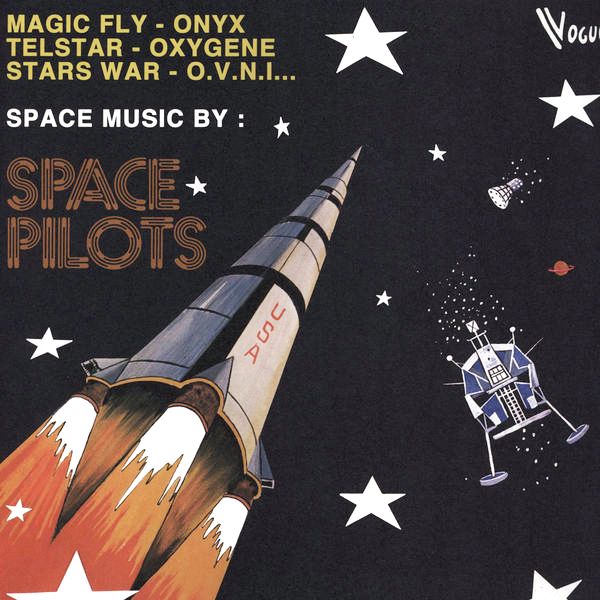
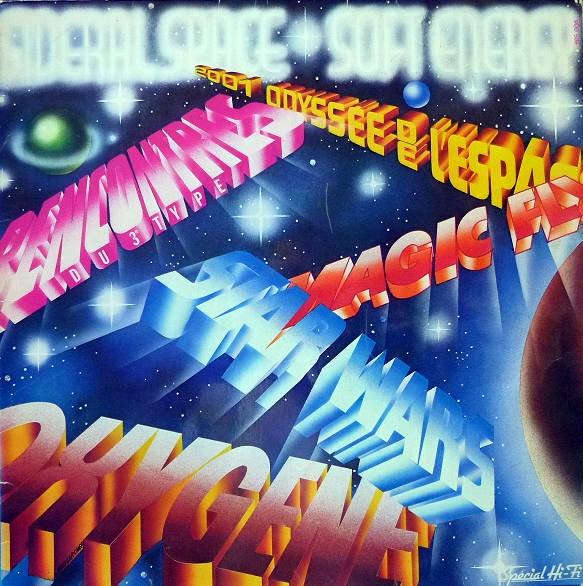
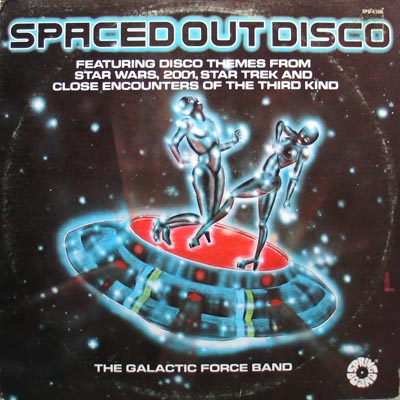
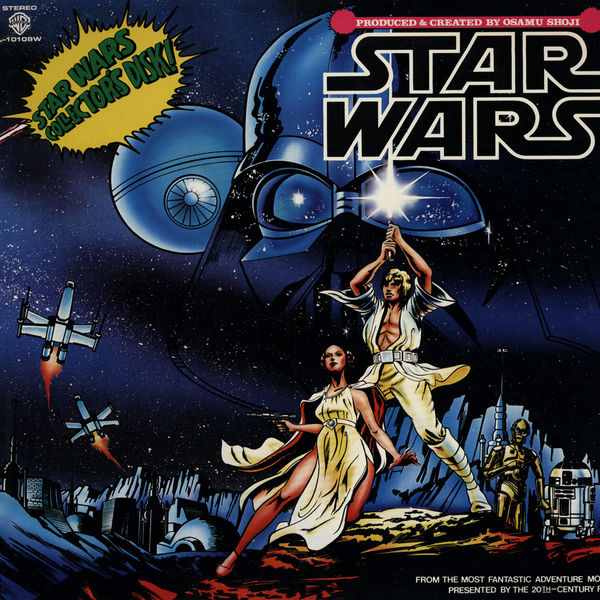
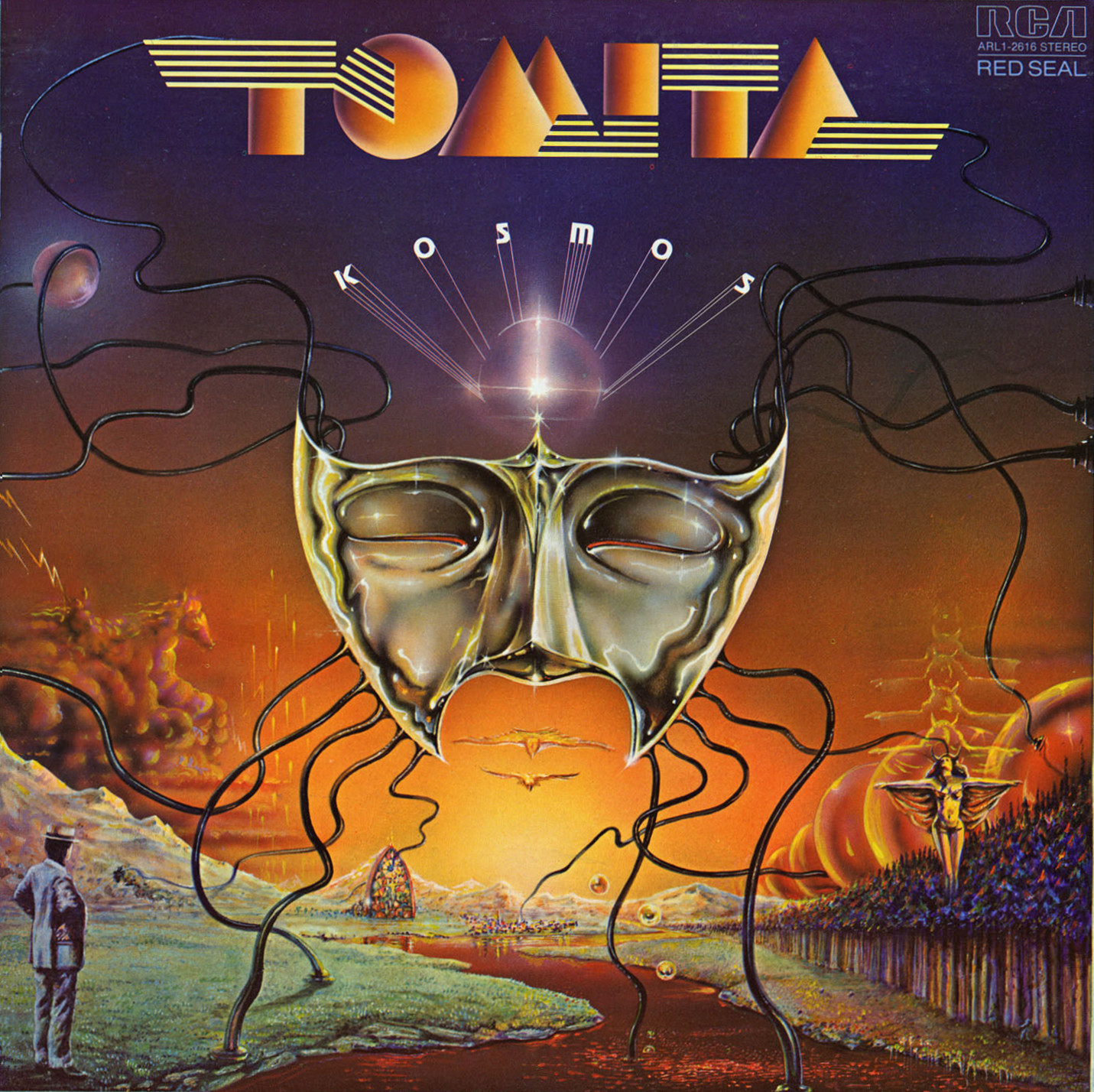
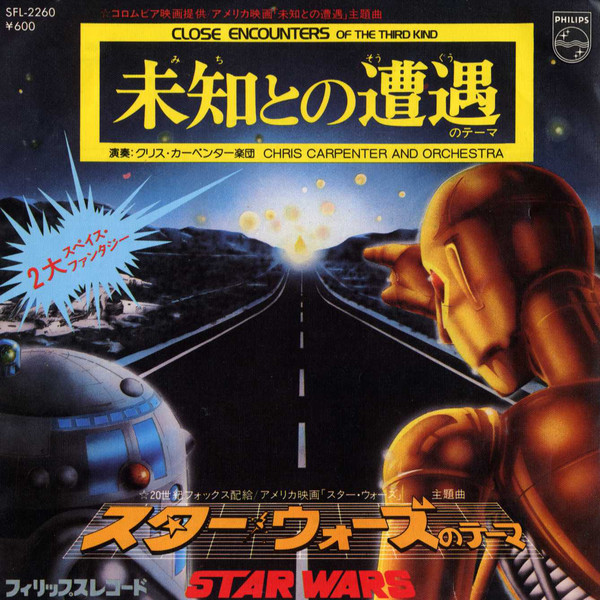
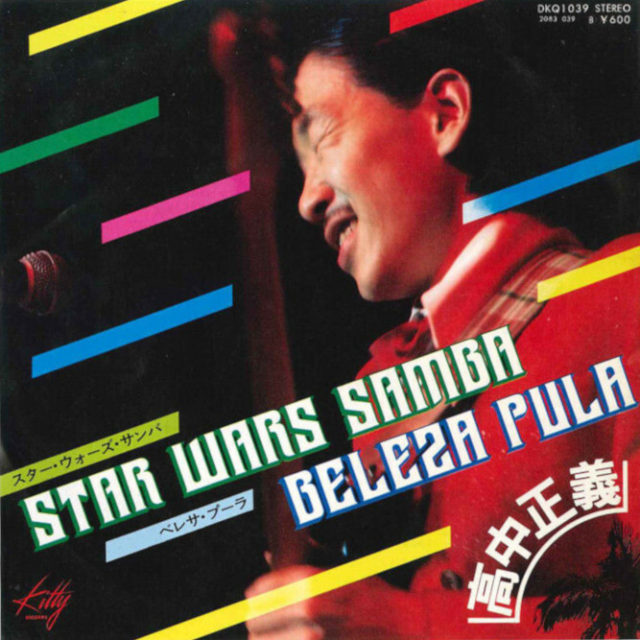
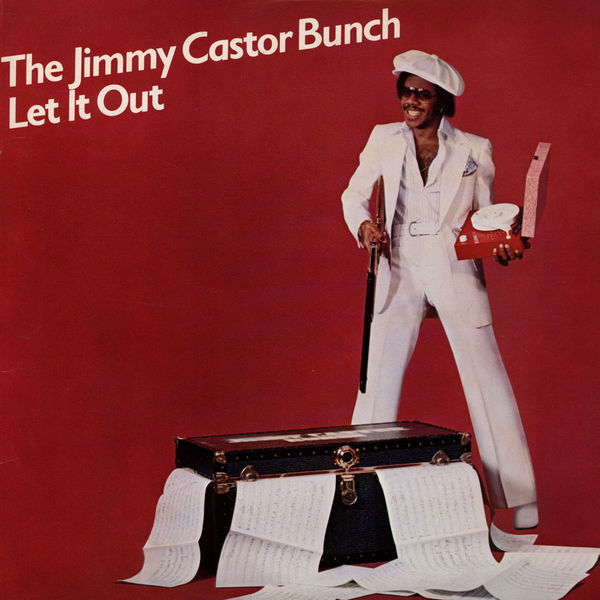
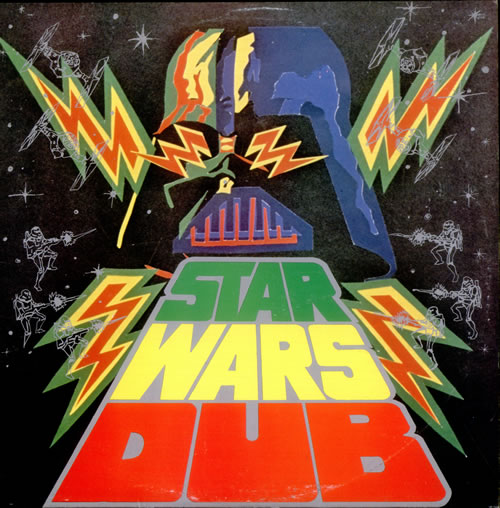
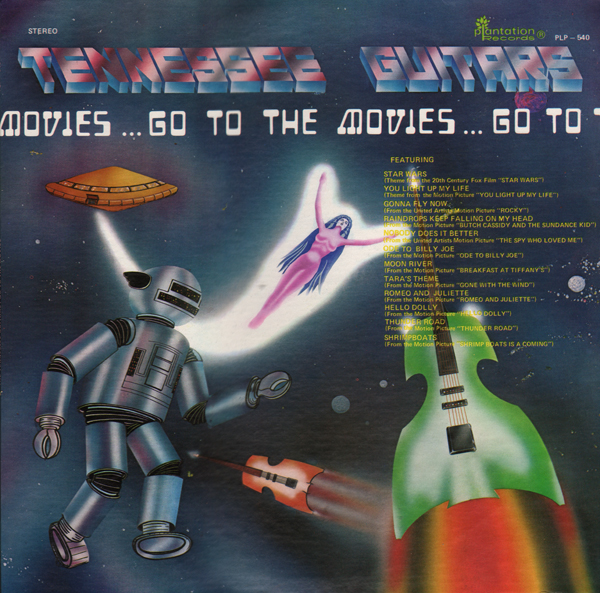
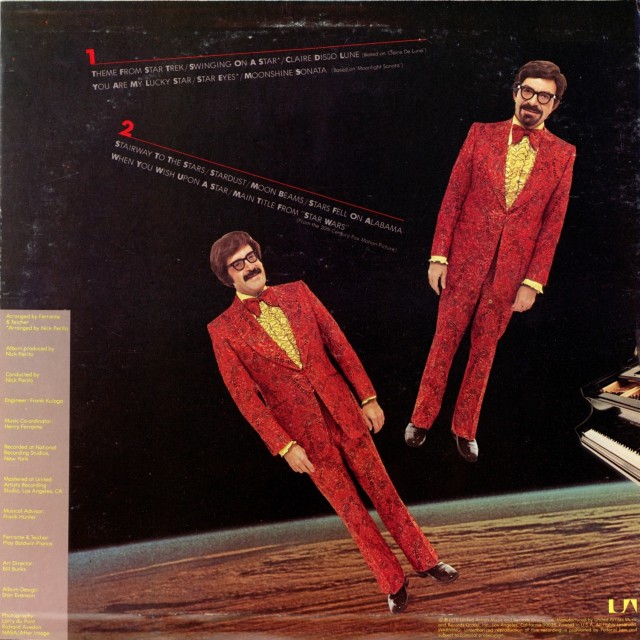
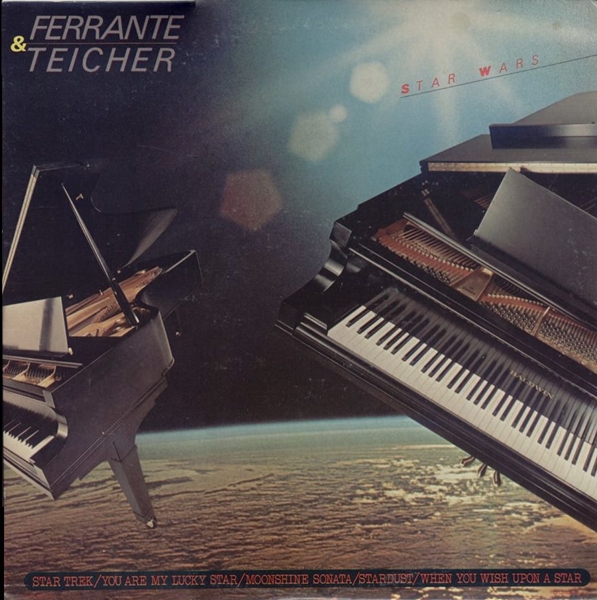
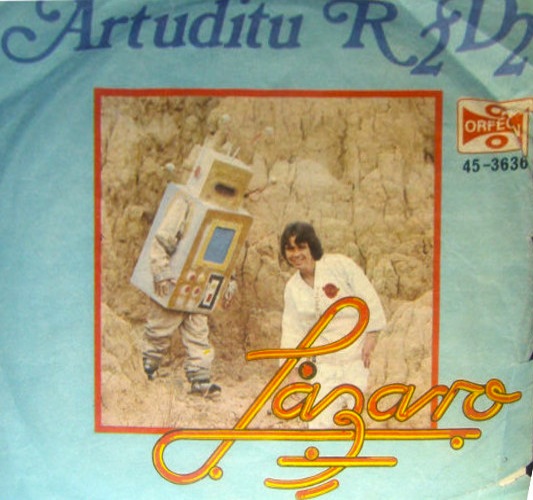
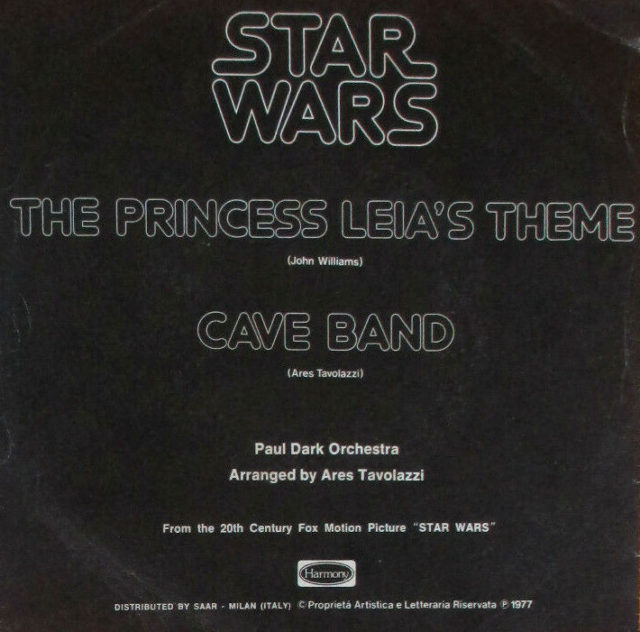
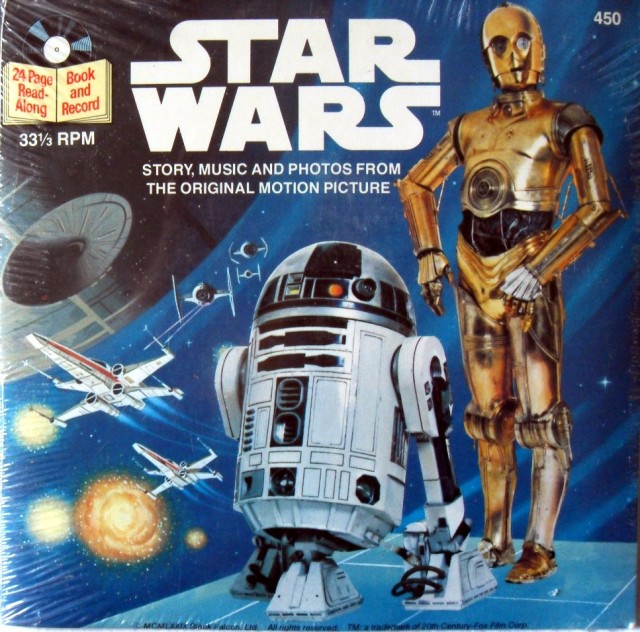
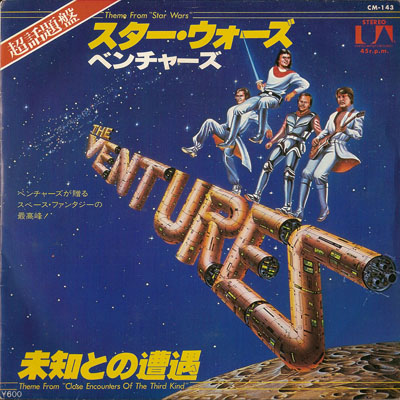
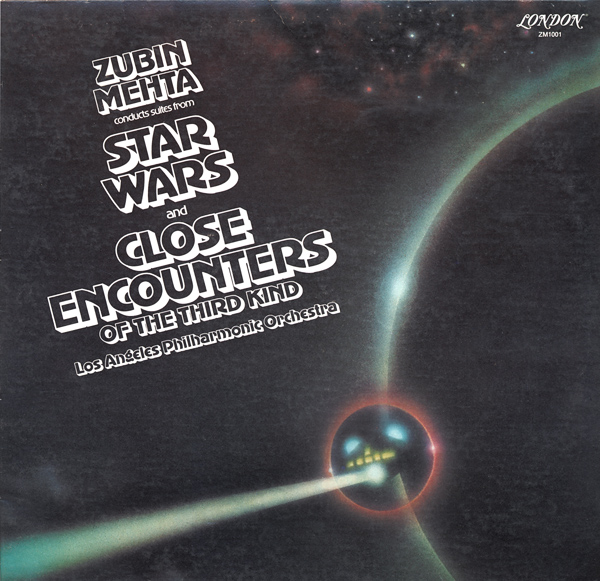
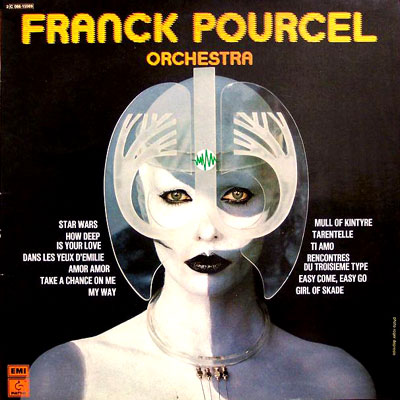
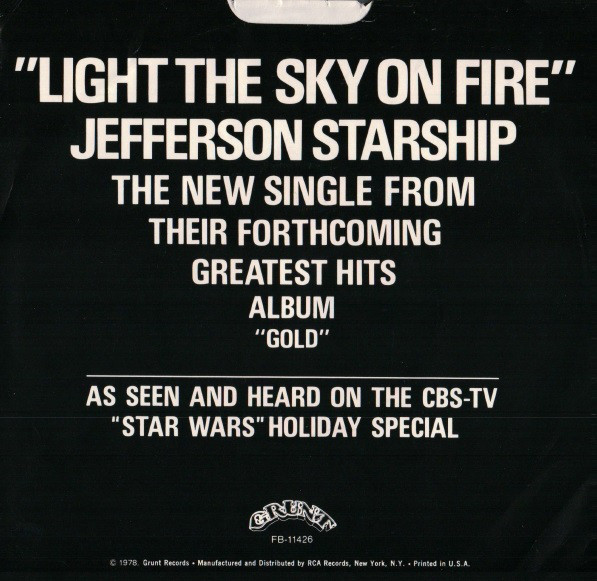
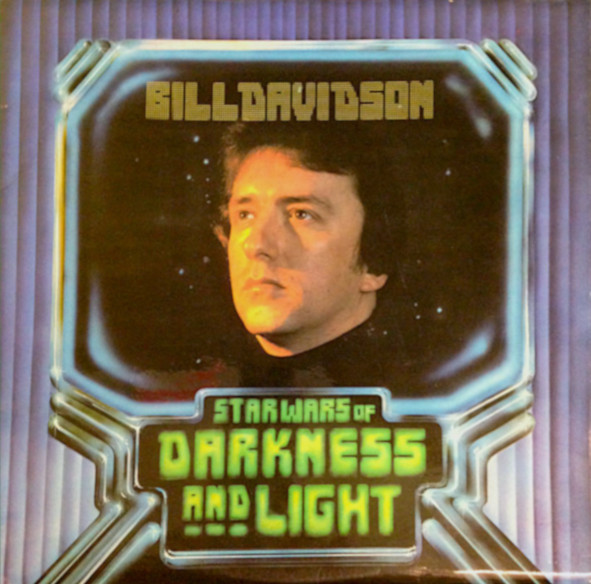
1 comment for “Starwarsploitation Sounds: Star Wars On Record, 1977-1979 [Revised And Expanded, 2019]”